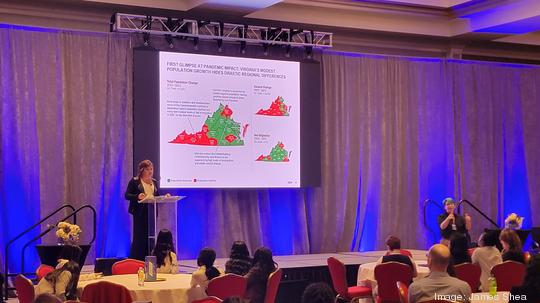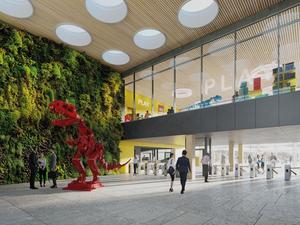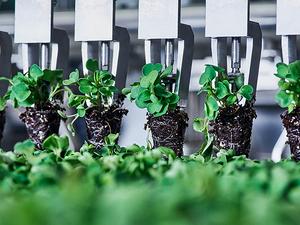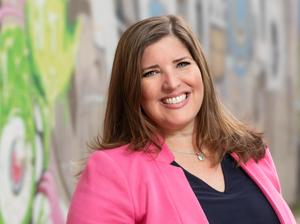
Christy Morton, senior vice president of policy and strategic partnerships at the Virginia Economic Development Partnership, says economic development has changed a lot in recent years, and the state's business community has had to adjust.
She summarized five such trends during her talk at rvatech’s recent Drive conference — labor scarcity, large project opportunities, speed to market, prioritizing energy and the decline of large office projects. She noted recently announced megaprojects in Chesterfield County from toymaker Lego Group and vertical farming company Plenty Unlimited are indicative of some of these trends.
Here’s what she said about each of them:
Labor scarcity — Before the Covid-19 pandemic, labor participation in Virginia was around 66%. That number dropped drastically during the first lockdowns and has rebounded to 64%. But Virginia has 117,000 fewer people working than before the pandemic. As a result, employers are fighting to hire qualified candidates, and employees have more bargaining power.
“The trend encourages more automation, [and] it also puts more pressure on wages,” Morton said. “In addition, it increases the demand for more flexibility. Employees are more in control.”
Large project opportunities — The types of projects that Virginia receives inquiries about are a lot larger, something surprising to economic development officials. In 2018, Virginia received interest in finding a home for six projects valued at $1 billion or more. In 2022, the number increased to 25.
Morton said the main drivers of these projects are reshoring of pharmaceutical, automotive manufacturing and semiconductor industries. The pandemic and supply chain issues demonstrate the need for these products to be manufactured in the U.S. She noted that Central Virginia has done an excellent job of becoming a hub for pharmaceutical manufacturing.
“[Business leaders] have really determined that in certain areas they can’t have those products being manufactured overseas,” Morton said.
Speed to market — Traditionally, economic incentive packages have been the key driver of economic development. That is no longer the case, Morton said. Companies want a site that is ready to be developed. This new reality is one of the key reasons Plenty and Lego picked Chesterfield, she said. Companies want to start building quickly and have products on the market in months rather than years.
“People tell us now that speed is the new incentive,” Morton said.
Prioritizing energy — Energy availability is one of the most asked questions from CEOs and location consultants, Morton said. Many are looking for renewable energy but also access to natural gas. Morton said the recent adoption of the CHIPS and Science Act and the Inflation Reduction Act of 2022 are key drivers of this trend, boosting semiconductor manufacturing and electric vehicle manufacturing, respectively.
Decline in large office projects — The pandemic radically changed the nature of work and reduced the amount of time people spend in the office. That has decreased the demand for large office projects, which has created challenges but also opportunities, Morton said. Mid-sized metro areas like Richmond have seen population increases from the new telework environment, and that has moved talent out of metro areas. The trend could drive companies to move to these markets.
Overall, Morton said she is excited about the opportunities for economic development in Virginia and in particular the technology industry. The commonwealth has one of the largest supplies of technology talent in the country, and technology drives economic growth.
“Attracting tech companies has a ripple effect on the economy,” Morton said. “It provides a great ecosystem for other types of companies.”


